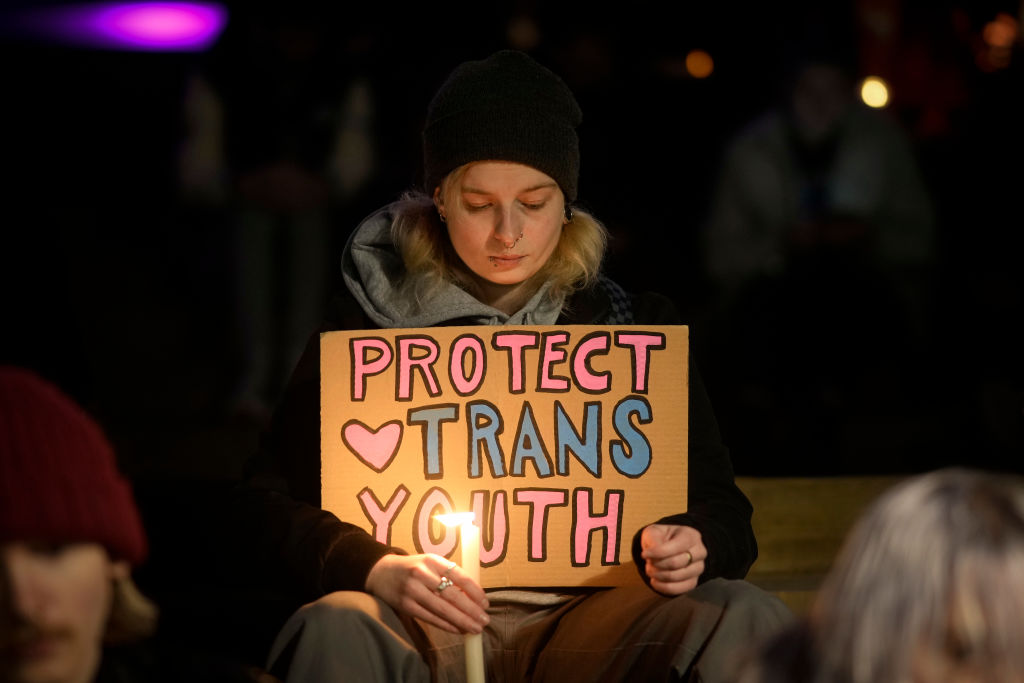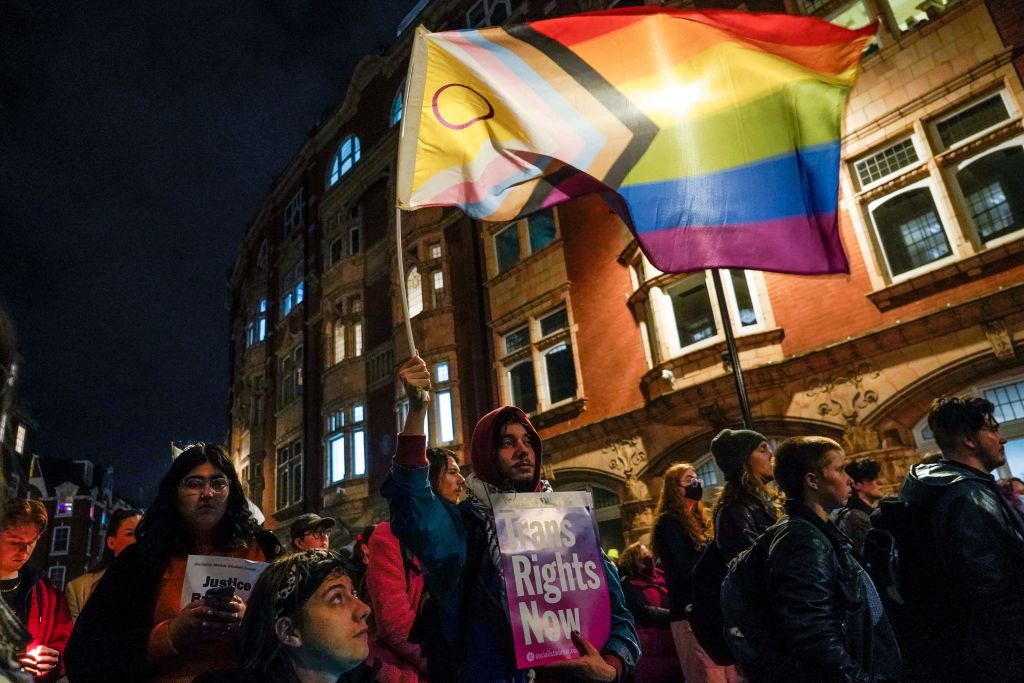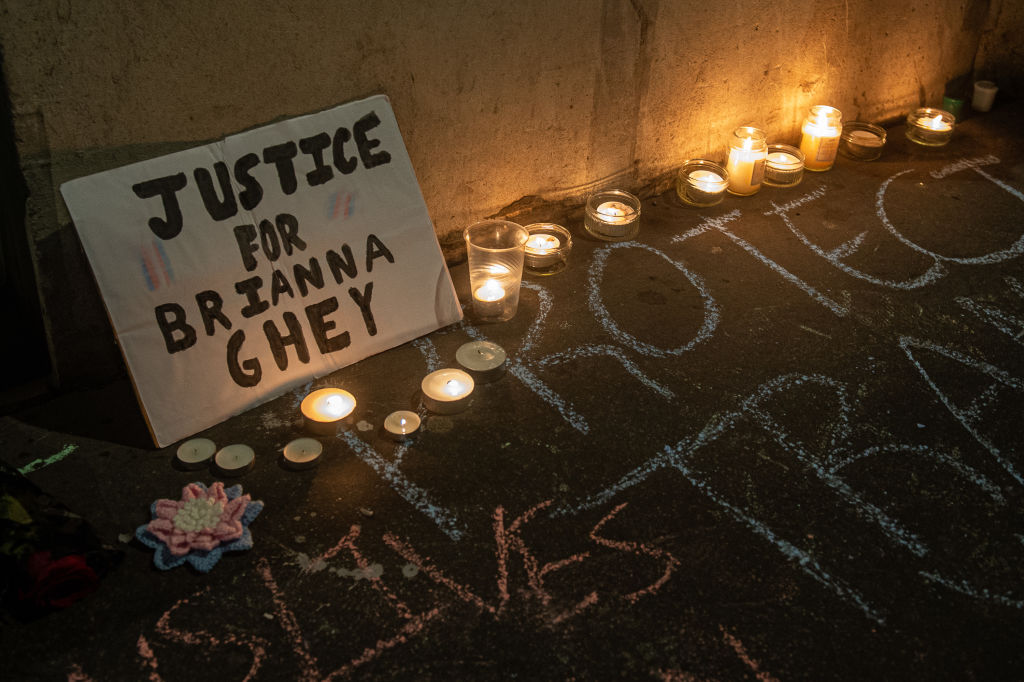How to look after your mental health and cope with grieving trans victims of violence

Constant news coverage of violence against the trans community can be harmful to your mental health. (Getty)
Constant news coverage of violence against the trans community can be harmful to your mental health. (Getty)
A trans therapist and a mental health charity share advice for looking after yourself following the killing of Brianna Ghey.
The violent death of a trans teenage girl, Brianna Ghey, has ignited a wave of fury and devastation among the LGBTQ+ community.
Aged just 16, Ghey died after being stabbed multiple times in a park in Warrington. Two teenagers, both aged 15, have been charged with her murder.
Brianna Ghey’s death and the ongoing coverage of the case will undoubtedly have an impact on queer people, especially those who are trans, as well as their families.
Chris Sheridan, founder and director of the Queer Therapist, says it’s important LGBTQ+ people – particularly the trans community – give themselves permission to grieve.
“The murder of Brianna Ghey is a deeply tragic and brutal act of violence against her and her loved ones,” Sheridan tells PinkNews.

“While the police have yet to confirm whether or not her death was a result of hate crime, it’s important to highlight that this murder is not an isolated act.
“The response we are seeing across the UK speaks to the collective grief and trauma our community is experiencing in response to both Brianna’s death but also the ongoing vicious political media attack on the trans community, particularly in the last few years.”
They continue: “The best way to cope with grief is to give yourself permission to grieve – to feel angry, helpless, numb, heartbroken, or whatever emotion is coming up for you right now.
“Mourning isn’t a statement of self pity or resignation, but is the space we all need to process loss and the trauma of this seemingly never ending wave of hate.”
Chris also recommends people think about what they “can control” in their lives.
“This may look like channelling your grief into activism work, organising a local vigil or maybe reaching out to your trans and queer siblings.

“Perhaps stepping away from social media and the news is a necessary step.
“In my experience, the greatest healer is when we come together as a community and share our experiences with each other.”
Brianna Ghey’s death could trigger ‘traumatic memories’ for queer people
Stephen Buckley, head of information at mental health charity Mind, says Ghey’s death could trigger “traumatic memories of discrimination” for LGBTQ+ people.
“We know many LGBTQIA+ people’s mental health is deeply affected by discrimination, homophobia, biphobia, and transphobia. Trans people deserve to live their live to the fullest, but far too often many LGBTQIA+ people’s mental health is deeply affected by discrimination and abuse.
“If you are struggling with your mental health in light of the tragic news this week, please don’t hesitate to reach out for support. That could be from trusted friends and loved ones, your GP, or services from us at Mind.
“You could also visit LGBTQIA+ specialist organisations, such as Stonewall or Being Gay is OK, who can offer more specific mental health support.”

Mind has offered a series of tips for queer people, allies and their loved ones who might be struggling with Ghey’s death.
1. Limit your news intake
There is lots of news coverage of Brianna Ghey’s death at the moment. Watching or reading the news can be a helpful way to stay informed, but it can also increase our distress or fear about an event.
If news stories make you feel upset, scared or confused, think about switching off or limiting what you look at for a while. You may want to try only looking at the news at a certain time of day, for a limited amount of time, and then doing something relaxing or creative afterwards.
2. Take a break from social media
If people are posting feelings or opinions on social media that leave you feeling upset, consider taking a break or limiting how you use social media. You might decide to view particular groups or pages but not scroll through timelines or newsfeeds.
3. Take action
In times like this, we can all feel helpless. Try to think about and focus on things you can control. You may find it helpful to take action for change. Unfortunately, this won’t always feel possible, and it’s important to remember that it’s not your responsibility alone to tackle big problems, but there may be times where you find taking action helpful.
Even small actions can contribute to making a difference. For example, you could write to your MP to ask them what action they will take to better support LGBTQIA+ people. Or you could offer support to relevant charities or campaigns.

4. Find ways to cope with your anxiety
The killing of a young trans woman may cause feelings of anxiety for many in the LGBTQIA+ community. You may be feeling fearful and unsafe in places where you would normally feel safe, or you might have concerns about facing violence.
Anxiety is a natural human response when we feel that we are under any sort of threat. It can be experienced through our thoughts, feelings and physical sensations.
Feeling anxious following a distressing news event is understandable, and this doesn’t always mean you have a mental health problem. But it’s always OK to take steps to look after yourself, or to reach out for support – including if you’re not sure whether you’re experiencing a mental health problem.
You might find it helpful to try some self-care tips to help cope with how you’re feeling. For example, you could try breathing exercises, distraction techniques or physical activity. You can find out more information on self-care tips for anxiety and panic attacks on Mind’s website.
5. Talk to someone
Talking to someone you trust about how you’re feeling could be a relief. It may be that just having someone listen to you and show they care can make a difference to how we feel. And you might find that you are both able to support one another with any worries you have.
Try asking someone if they have time for a chat. If you aren’t able to open up to someone close to you, the Samaritans are available to talk 24/7 on 116 123 or you can email them at [email protected]. Mind’s website also has information on useful LGBTQIA+ support contacts.

